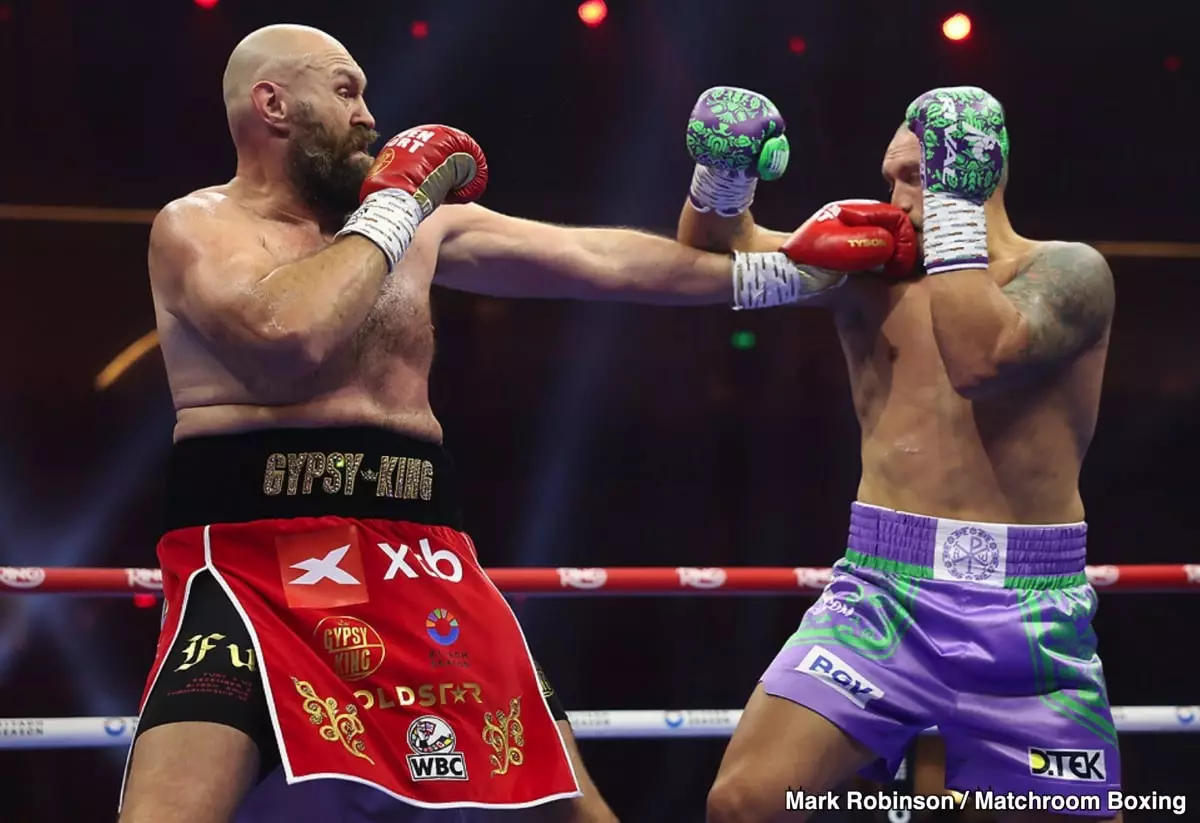In the world of heavyweight boxing, the debate over the right time to retire is a perennial topic. Recently, former trainer Teddy Atlas weighed in on Tyson Fury’s future following his defeat to Oleksandr Usyk. Atlas expressed strong sentiments regarding the 36-year-old Fury’s journey in the ring, contending that after years of grueling battles, it may be time for Fury to hang up his gloves. This sentiment comes after Fury’s loss, which showcased not just the prowess of Usyk as a fighter, but also put into perspective Fury’s own vulnerabilities.
Atlas contextualizes his argument by highlighting the difficulty of Fury’s past fights. The trilogy against Deontay Wilder took a toll on Fury, who showcased an incredible resilience but also paid a steep price in terms of physical and mental fatigue. Atlas points out that these types of encounters leave indelible marks on fighters, reducing their ability to perform at optimal levels over time. In this light, Atlas asserts that it might be wise for Fury to secure his legacy now rather than risk becoming a shadow of his former self by continuing to fight.
While Atlas’s perspective is steeped in respect for Fury’s accomplishments, it also raises another question: How does one define greatness in boxing? The evaluation of any fighter’s legacy is inherently subjective and raises the stakes in discussions about retirement. Atlas’s comments hint at a slightly critical view, suggesting that Fury, despite his impressive record, may not belong in the same conversation as the all-time greats like Muhammad Ali or Joe Louis.
Indeed, Fury’s victories, many believe, have largely come against opponents who were either past their prime or not of elite caliber. His bouts against Klitschko, Wilder, and others raised his stock but created an illusion of greatness that was shattered by his encounters with the skillful Usyk. The losses to Usyk serve as a reminder that Fury’s career has been built on specific matchups rather than a consistent record against top-tier fighters in their prime. In this regard, the argument could be made that Fury’s brand of boxing brilliance has been more about timely matchmaking than inherent sporting superiority.
Although many believe that the end may be near for Fury’s career, it’s worth noting the nuances of boxing promotions and finances that often complicate retirement discussions. Atlas speculates that despite his comments urging retirement, Fury is unlikely to stay retired, especially with the allure of lucrative fights—particularly against names like Anthony Joshua or additional matches with Usyk—beckoning him back to the ring. The monetary incentives provided by promoters like Turki Al-Sheikh could prove too powerful for Fury to resist, especially considering the substantial paychecks that often accompany high-profile bouts.
This dilemma sets up a classic confrontation between desire and practicality. While Fury himself may feel a compulsion to wrap up his career honorably, reality often pulls athletes back into the fray, especially with financial support on the table. Fans and critics alike will be watching closely to see if Fury can reconcile the glory of his past with the present threats posed by younger, formidable opponents.
In closing, Teddy Atlas’s perspective on Tyson Fury raises significant talking points regarding the heavyweights’ career trajectory and the concept of retirement in sports. While Atlas advocates for an honorable exit, the pressure to re-enter the ring for financial gain complicates this narrative. To genuinely secure a legacy free from the tarnish of poor performances, perhaps Fury should heed the advice from those like Atlas and reflect deeply on his next steps in the realm of boxing.
The world of sports often finds it challenging to balance the thrill of competition with the reality of decline, but it is crucial for athletes to recognize when their moment in the limelight is coming to an end. Whether Tyson Fury heeds this advice remains to be seen, but one thing is clear: the conversation surrounding his future is far from over.


Leave a Reply